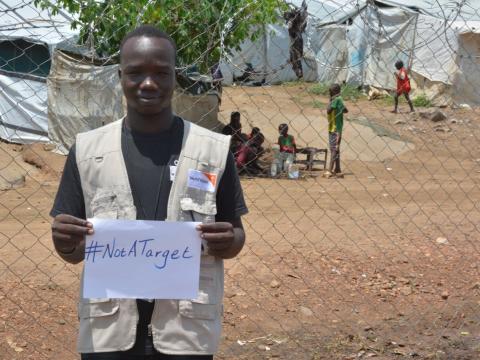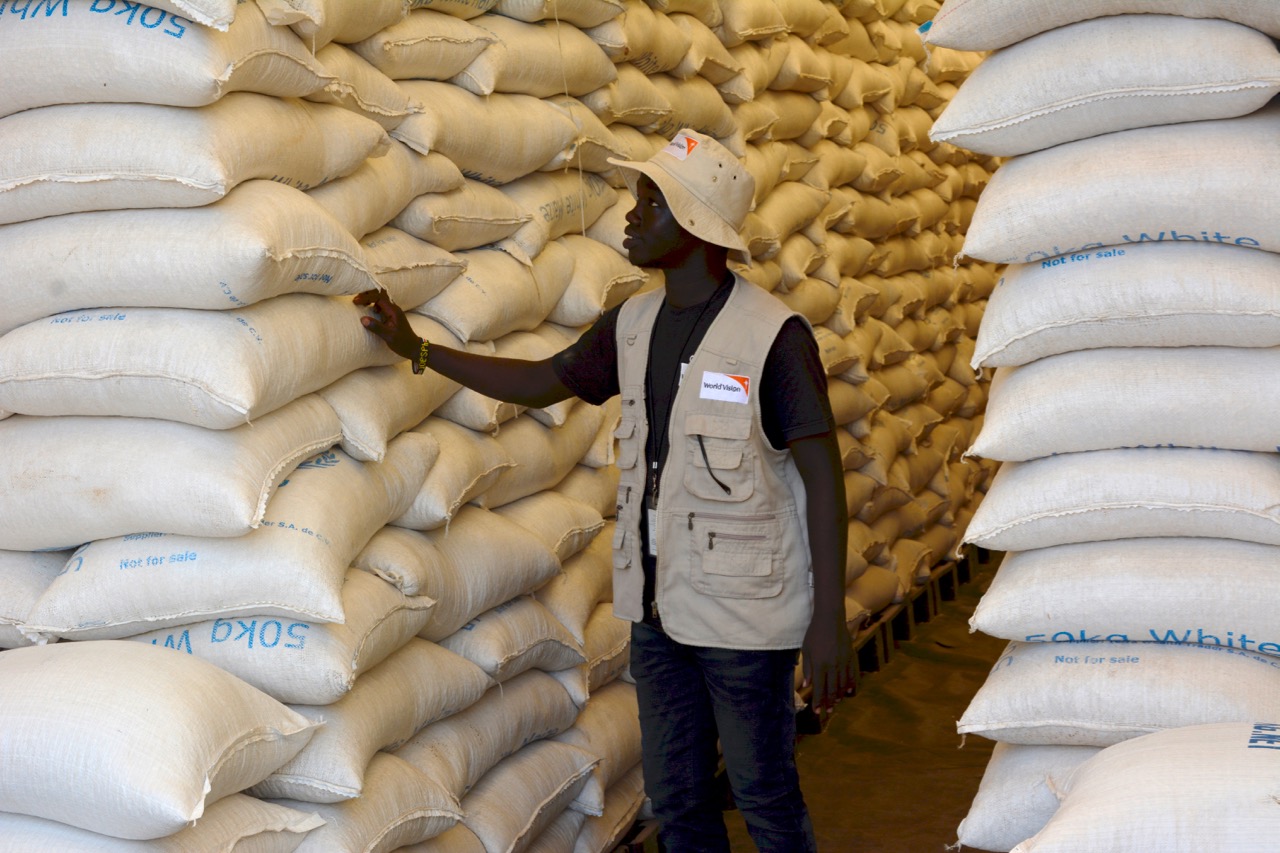Moving 7,000+ to safety, then fleeing South Sudan's violence myself

They say that what goes around comes around. I found myself in this situation earlier this year. The people I have served as a humanitarian worker recently reciprocated by giving me food and shelter.
I joined World Vision in 2013 as part of the food assistance team. At that time, I knew that there was a likelihood of coming face to face with armed conflict. After all, most of the locations served by our team are hard to reach and affected by conflict.
Since then, I have been in areas that have experienced a lot of shelling between armed groups. There have been times our relief team has been forced to hibernate until the shelling stopped. Even then though, I didn’t feel a real threat to my life.
That changed in April this year.
I was in Kodok in Upper Nile and had been left as the acting team leader. Due to tension, some of our team was relocated to Juba but myself, five other staff members and a casual worker remained in the World Vision compound.
On 25th April, fighting intensified and spread to Kodok. Most of the civilians, who were internally displaced people (IDPs), fled to areas they considered were safer.
Seeing the intensity of the fighting, I led our team to Aburoc, about an hour’s drive away. World Vision had another compound there and we had three vehicles and eight motorbikes in the compound there.
That afternoon, together with the other three humanitarian agencies that had also moved to Aburoc, we were instructed by the authorities to use our vehicles to transport IDPs from Alelo to Aburoc. We had no choice but to comply.
This was a 45-minute drive but it seemed longer because of the tension. Although there was no fighting along this road, there were armed soldiers all the way and we prayed that fighting would not break out.
We worked from 4 p.m to 2 a.m. transporting about 7,000 people displaced by the conflict.
The next morning, after a short rest, we were instructed to continue with the exercise, and we transported a similar number.
Later that evening, armed people came into the World Vision compound. They took four motorbikes by force. Still later that night, more of the armed people came and looted everything. They took two of the three cars. The following morning they came back and took the third car.
I realised that we had no protection. I told my colleagues that we needed to leave and head to Sudan in the north. We departed by foot at 5 p.m. on 27 April. We walked for 10 hours until we arrived in a place called Athidhwoi, which was safer.
We managed to bring with us some money that the looters did not find. The money bought us a ride on a tractor and some public transport. We eventually arrived at the border camp of Magenis in Sudan, where we were registered as refugees.
We spent the night there and the following morning we were put in a truck with other refugees and transported to Khor Waral, another border camp.
It is here that I experienced the generosity of refugees.
For the five days that we travelled after leaving Aburoc, we survived only on drinks, mainly milk which we bought from communities on the way. We were so hungry and tired when we arrived at Khor Waral.
Some of the refugees we found at the camp were people we had assisted back in South Sudan. They took it upon themselves to provide us with food and shelter.
It was humbling to depend on the people we had been assisting. I stayed at the camp hoping fighting would stop so that we could go back to Aburoc. When this did not happen, we travelled to Khartoum and later took a flight to Juba.
I am now waiting to go on a rapid response mission to Jonglei, another conflict area in South Sudan. I am happy to be able to continue providing people with life-saving assistance. I feel it is the very least contribution I can make in this life.
